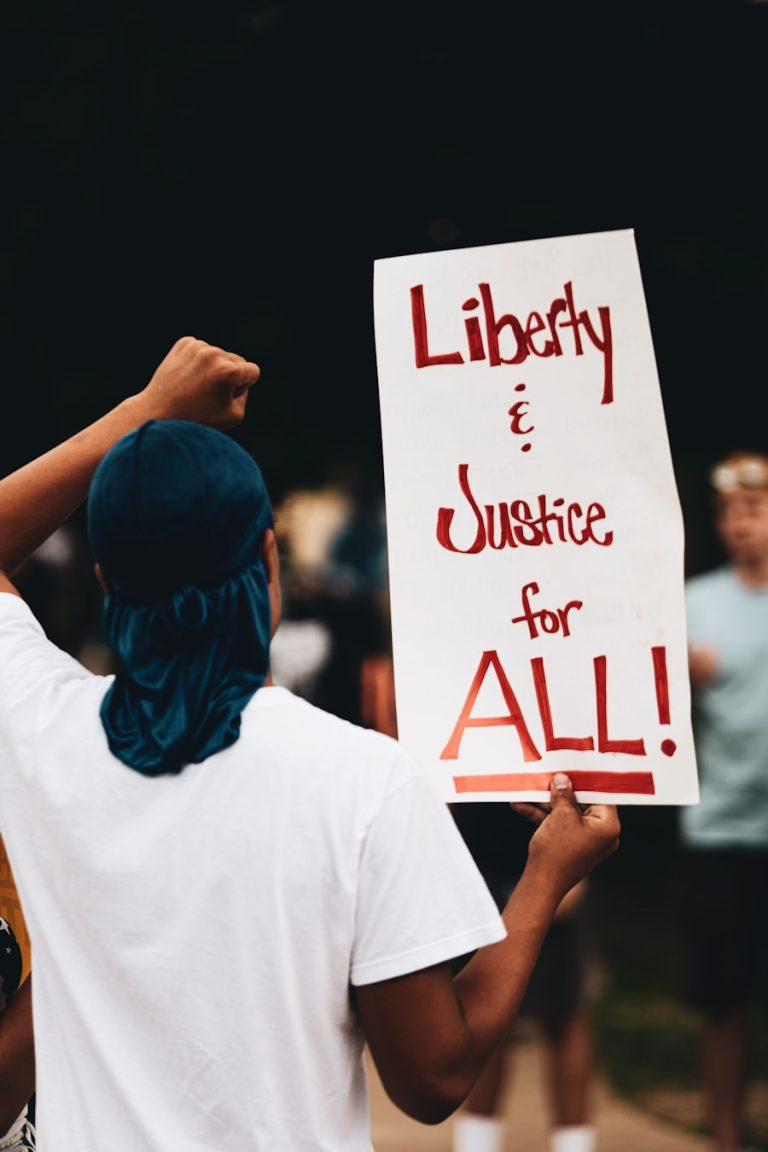
The Sixth Amendment to the United States Constitution, ratified in 1791 as part of the Bill of Rights, was born out of a historical context that emphasized the need for fair legal processes. The framers of the Constitution were acutely aware of the abuses that could arise from unchecked governmental power, particularly in the realm of criminal justice. The amendment was designed to ensure that individuals accused of crimes would have certain fundamental rights, thereby safeguarding them against potential tyranny.
The historical backdrop includes the experiences of American colonists under British rule, where they often faced trials that lacked transparency and fairness. The British legal system at the time allowed for secret trials and denied defendants the right to counsel, leading to widespread injustices that the framers sought to rectify. The purpose of the Sixth Amendment is multifaceted, aiming to create a more equitable legal framework.
It guarantees essential rights that are crucial for a fair trial, including the right to a speedy trial, an impartial jury, and legal representation. These rights are not merely procedural; they embody the principle that justice should be accessible and transparent. By enshrining these rights in the Constitution, the framers intended to promote public confidence in the judicial system and to ensure that every individual, regardless of their social status or wealth, would have a fair opportunity to defend themselves against criminal charges.
Key Takeaways
- The 6th Amendment was established to ensure fair and speedy trials for defendants in the United States.
- The 6th Amendment guarantees the rights to a speedy and public trial, the right to confront witnesses, and the right to counsel.
- The 6th Amendment plays a crucial role in the criminal justice system by protecting the rights of the accused and ensuring due process.
- The right to a speedy trial ensures that defendants are not held in pretrial detention for an unreasonable amount of time.
- The right to confront witnesses allows defendants to challenge the evidence presented against them and cross-examine witnesses.
The Rights Guaranteed by the 6th Amendment
Preventing Prolonged Detention and Ensuring Justice
The right to a speedy trial is a fundamental aspect of the Sixth Amendment, aimed at preventing prolonged detention without trial and minimizing the anxiety and uncertainty faced by defendants. This right is crucial in maintaining the integrity of the judicial process, as delays can lead to faded memories, lost evidence, and an overall erosion of justice.
Guaranteeing Transparency and Accountability
The Sixth Amendment also guarantees the right to a public trial, which serves as a check on judicial proceedings by allowing public scrutiny and accountability. This ensures that the trial process is transparent and fair, with the public able to observe and critique the proceedings.
Ensuring a Fair Defense
The amendment provides for several other critical rights, including the right to an impartial jury, the right to be informed of the nature and cause of the accusations, and the right to confront witnesses. These rights ensure that defendants are judged by a group of their peers who are unbiased and representative of the community, and that they have the opportunity to challenge the evidence presented against them directly. Finally, the right to counsel guarantees that individuals have access to legal representation, which is vital for navigating the complexities of the legal system.
The Role of the 6th Amendment in the Criminal Justice System

The Sixth Amendment plays a pivotal role in shaping the criminal justice system in the United States. It establishes a framework that prioritizes fairness and due process, ensuring that individuals accused of crimes are treated with dignity and respect. This amendment acts as a safeguard against potential abuses by law enforcement and judicial authorities, reinforcing the principle that every person is entitled to a fair trial.
The rights enshrined in the Sixth Amendment are not merely theoretical; they have practical implications that influence how trials are conducted and how justice is administered. In practice, the Sixth Amendment has led to significant reforms within the criminal justice system. For instance, it has prompted courts to establish guidelines for what constitutes a “speedy” trial, recognizing that prolonged delays can undermine justice.
The amendment also underscores the importance of legal representation, leading to landmark decisions such as Gideon Wainwright (1963), which affirmed that defendants have a right to counsel even if they cannot afford one. This case exemplifies how the Sixth Amendment has evolved over time to adapt to changing societal norms and expectations regarding justice.
Understanding the Right to a Speedy and Public Trial
| Aspect | Metrics |
|---|---|
| Speedy Trial | Number of days from arrest to trial |
| Public Trial | Percentage of trials open to the public |
| Access to Information | Number of days for public access to trial information |
The right to a speedy trial is one of the cornerstones of the Sixth Amendment, designed to protect defendants from prolonged pretrial detention and ensure timely resolution of criminal charges. This right serves multiple purposes: it helps maintain public confidence in the judicial system, prevents undue hardship on defendants who may be incarcerated while awaiting trial, and minimizes the risk of evidence degradation over time.
Public trials are equally significant as they promote transparency in judicial proceedings. The presence of an audience serves as a check on potential abuses by judges or prosecutors, ensuring that trials are conducted fairly and justly. Public access allows for community engagement with the legal process and fosters accountability among legal professionals.
However, there are instances where public trials may be limited due to concerns about witness safety or national security; in such cases, courts must carefully balance these interests against the fundamental right to an open trial.
Exploring the Right to Confront Witnesses
The right to confront witnesses is another essential aspect of the Sixth Amendment that empowers defendants in criminal proceedings. This right allows individuals accused of crimes to challenge the testimony presented against them directly. Confrontation serves as a critical mechanism for ensuring that evidence is reliable and credible; it enables defendants to question witnesses about their statements, motivations, and potential biases.
This process not only aids in uncovering inconsistencies but also reinforces the adversarial nature of the American legal system. The importance of this right is underscored by landmark Supreme Court cases such as Crawford Washington (2004), which established that testimonial statements made outside of court cannot be admitted unless the witness is available for cross-examination. This ruling emphasized that confrontation is not merely a procedural formality but a fundamental aspect of ensuring justice.
The ability to confront witnesses also extends beyond mere questioning; it encompasses a defendant’s right to present their own evidence and call witnesses on their behalf, further enriching the adversarial process.
The Importance of the Right to Counsel

The right to counsel is perhaps one of the most significant protections afforded by the Sixth Amendment. This right ensures that defendants have access to legal representation during criminal proceedings, which is crucial for navigating complex legal landscapes. The presence of an attorney can significantly impact trial outcomes; studies have shown that individuals with legal representation are more likely to receive favorable verdicts compared to those who represent themselves.
This disparity highlights not only the intricacies of legal procedures but also underscores systemic inequalities that can arise when individuals lack access to competent legal counsel. The landmark case Gideon Wainwright (1963) solidified this right by ruling that states are required to provide counsel for defendants who cannot afford an attorney in felony cases. This decision marked a turning point in American jurisprudence, reinforcing the notion that justice should not be contingent upon an individual’s financial resources.
The implications of this ruling extend beyond mere representation; it emphasizes society’s collective responsibility to ensure that all individuals have equal access to justice, thereby fostering a more equitable legal system.
The Implications of the 6th Amendment for Defendants
The implications of the Sixth Amendment for defendants are profound and far-reaching. By guaranteeing fundamental rights such as legal representation, an impartial jury, and the ability to confront witnesses, it empowers individuals accused of crimes with tools necessary for mounting an effective defense. These rights serve as critical safeguards against wrongful convictions and ensure that defendants can actively participate in their own defense strategies.
Moreover, they promote transparency within judicial proceedings, fostering public trust in a system designed to uphold justice. However, challenges remain in fully realizing these rights for all defendants. Issues such as inadequate funding for public defenders can lead to overworked attorneys who may struggle to provide effective representation for their clients.
Additionally, systemic biases within law enforcement and judicial processes can disproportionately affect marginalized communities, raising questions about whether all individuals truly receive equal protection under the law as envisioned by the Sixth Amendment. Addressing these challenges requires ongoing advocacy and reform efforts aimed at ensuring that every defendant’s rights are upheld consistently across diverse contexts.
The 6th Amendment in Practice: Case Studies and Examples
Examining specific case studies illustrates how the Sixth Amendment operates in practice and its impact on individual lives within the criminal justice system. One notable example is Gideon Wainwright (1963), where Clarence Earl Gideon was charged with a felony but could not afford an attorney. He represented himself at trial and was convicted; however, he appealed his case to the Supreme Court, which unanimously ruled that states are required under the Sixth Amendment to provide counsel for defendants unable to afford an attorney in felony cases.
This landmark decision not only transformed Gideon’s life but also reshaped public defense systems across America. Another significant case is Strickland Washington (1984), which established standards for determining whether a criminal defendant’s Sixth Amendment right to counsel was violated due to ineffective assistance of counsel. In this case, David Washington was convicted of murder despite his attorney’s failure to investigate critical evidence that could have exonerated him.
The Supreme Court’s ruling set forth a two-pronged test: defendants must show that their attorney’s performance was deficient and that this deficiency prejudiced their defense outcome. This case underscored how vital competent legal representation is within criminal proceedings and highlighted ongoing challenges related to ensuring effective counsel for all defendants. These examples demonstrate not only how pivotal cases shape interpretations of constitutional rights but also how they reflect broader societal values regarding justice and fairness within legal systems.
As society continues grappling with issues related to criminal justice reform, understanding and upholding the principles enshrined in the Sixth Amendment remains essential for fostering equitable treatment under law for all individuals accused of crimes.
If you want to learn more about the 6th Amendment to the Constitution of the United States of America, you should check out the article “Criminal Justice: The Libertarian Approach” on libertarian.center. This article discusses how libertarians view the criminal justice system and the importance of protecting individual rights, including those guaranteed by the 6th Amendment. It provides a unique perspective on how the principles of liberty and justice intersect in the American legal system.
FAQs
What is the 6th Amendment to the Constitution of the United States of America?
The 6th Amendment is one of the ten amendments that make up the Bill of Rights in the United States Constitution. It guarantees the rights of criminal defendants, including the right to a fair and speedy trial, the right to be informed of the nature and cause of the accusation, the right to confront witnesses, and the right to legal representation.
When was the 6th Amendment ratified?
The 6th Amendment was ratified on December 15, 1791, as part of the Bill of Rights.
What rights does the 6th Amendment guarantee to criminal defendants?
The 6th Amendment guarantees several rights to criminal defendants, including the right to a speedy and public trial, the right to be informed of the nature and cause of the accusation, the right to confront witnesses, the right to compel witnesses to appear in court, and the right to legal representation.
Why is the 6th Amendment important?
The 6th Amendment is important because it ensures that individuals accused of crimes have the opportunity to defend themselves in a fair and impartial manner. It protects the rights of the accused and helps to ensure that justice is served in the criminal justice system.
How does the 6th Amendment protect the rights of the accused?
The 6th Amendment protects the rights of the accused by guaranteeing them a fair and speedy trial, the right to be informed of the nature and cause of the accusation, the right to confront witnesses, the right to compel witnesses to appear in court, and the right to legal representation. These rights help to ensure that individuals accused of crimes are treated fairly and have the opportunity to defend themselves.






